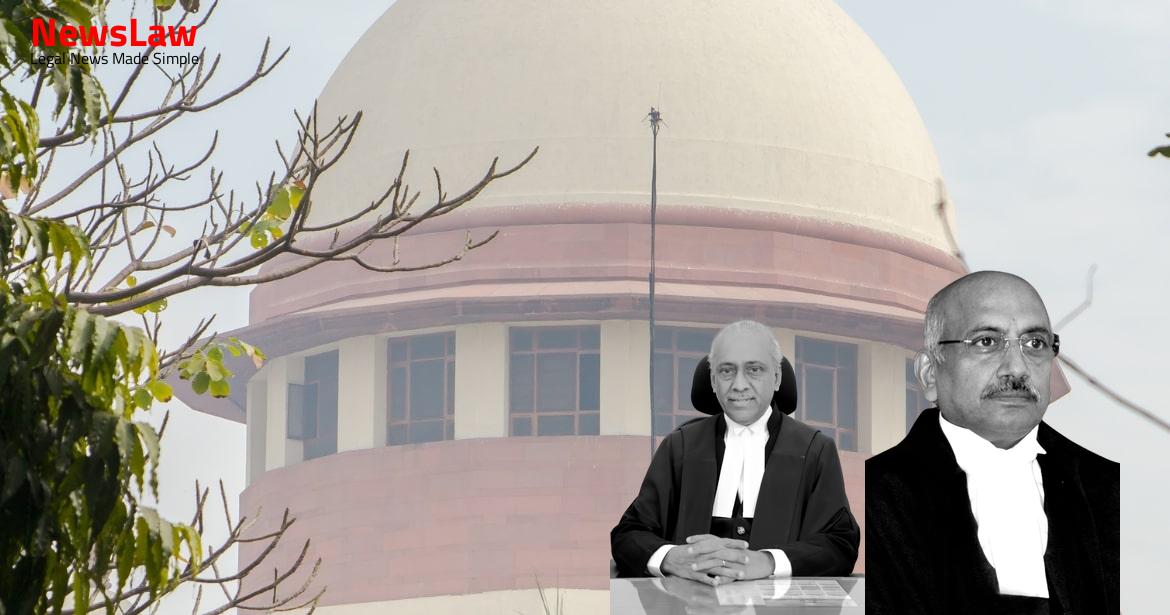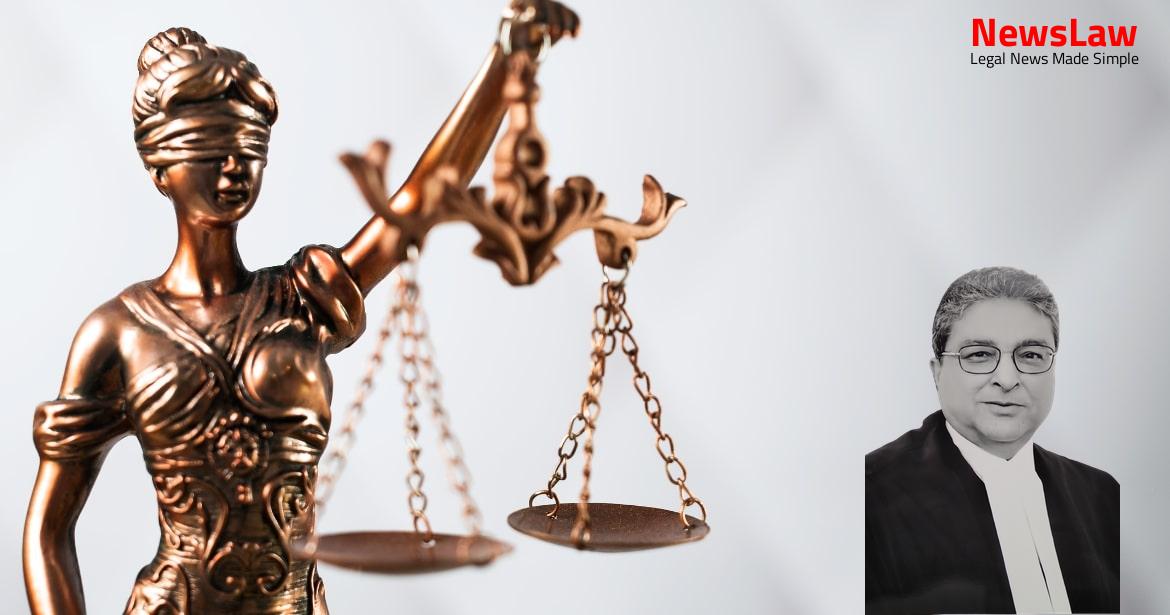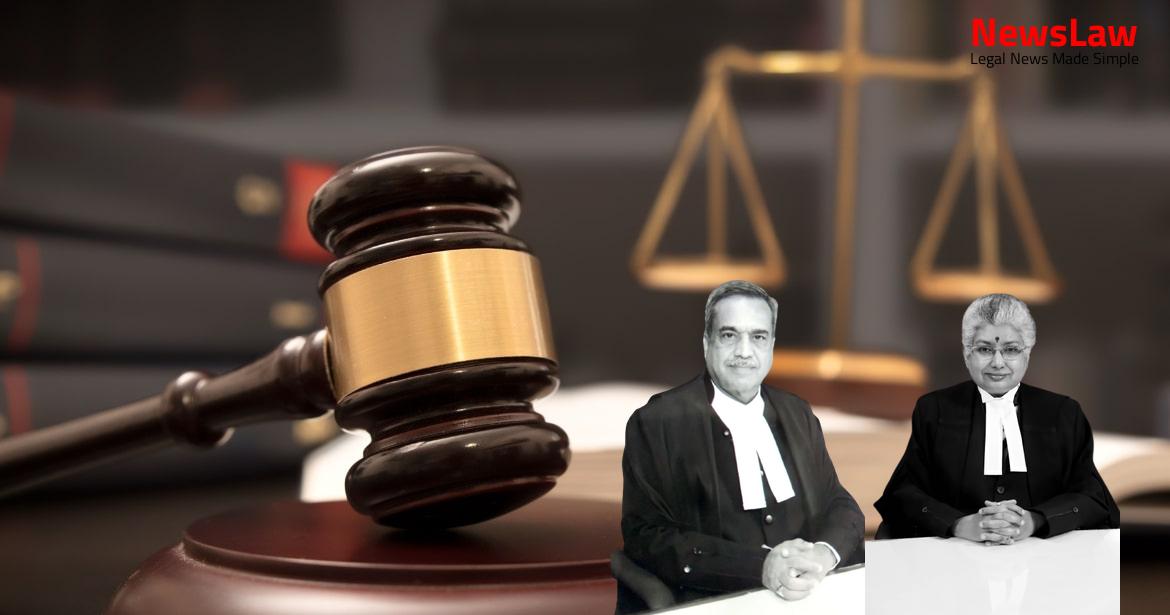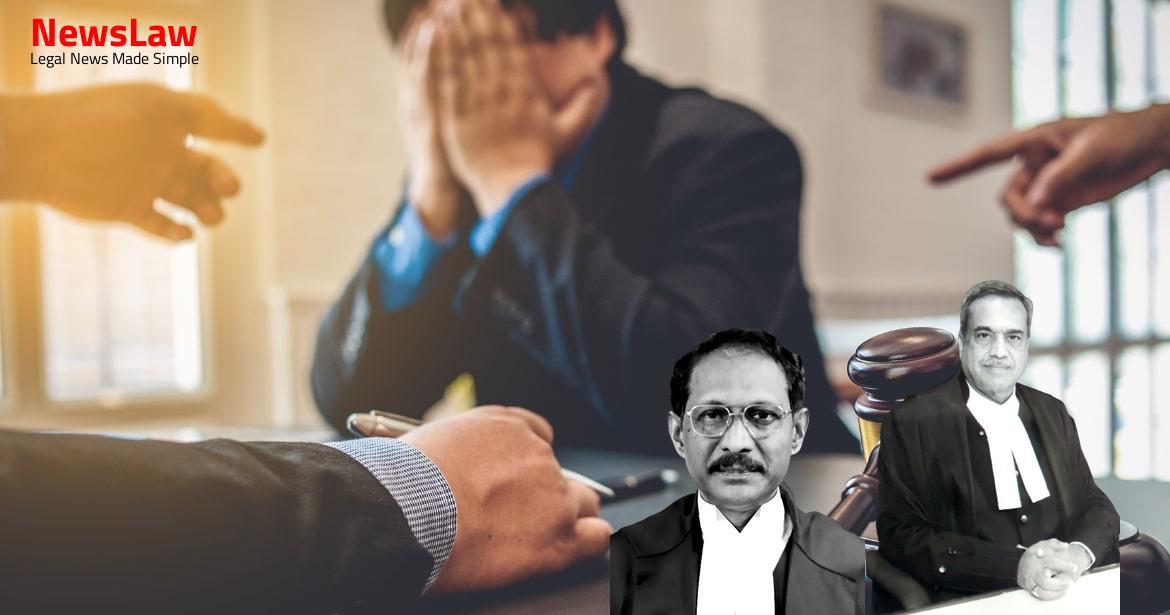In a recent court case, the interpretation of a Will and its implications under the Hindu Succession Act underwent detailed legal scrutiny. The courts engaged in thorough legal analysis to determine the rights of the parties involved. Let’s dive into the complexities of this case where the courts dissected the provisions of the Will and the Hindu Succession Act to arrive at their judgments.
Facts
- The Will dated 4.05.1976 by Shri Kashirao Sampatrao Deshmukh was considered proved by all three courts involved in the case.
- The trial court initially upheld the validity of the Will set up by the defendants in a suit for recovery of possession and mesne profits.
- An appeal was filed by the plaintiff No.1 regarding the nature of the bequest under the Will and the validity of the Gift Deed.
- In the appeal, the Additional District Judge dismissed the appeal filed by the defendants, affirming that Shevantabai had full ownership rights to gift the property to the plaintiff.
- The High Court later reversed this decision, stating that Shevantabai only held a life estate as per the Will and her estate could not be enlarged under the Hindu Succession Act.
- Defendants alleged that a Will was executed by Shri Kashirao Sampatrao Deshmukh on 4.05.1976.
- Defendants claimed the gift deed by Shevantabai was null and void due to a limited life estate conferred in the alleged Will.
- Trial Court dismissed the claim of the appellant but granted possession to plaintiff No.2 during her lifetime as per the alleged Will.
- Defendants contended that Shevantabai was granted only a life estate under the Will and the property was to devolve upon the first defendant afterward.
- Shevantabai gifted the property to the appellant under a registered Gift Deed dated 9.04.1981 after her husband’s death.
- Defendants allegedly took control of the property and drove Shevantabai out, leading to a civil suit filed by the appellant and Shevantabai.
Also Read: Analysis of High Court’s Decision on Registration Certificate and Onus of Proof in Sales Tax Case
Analysis
- The trial Court viewed the bequest under the Will as a limited right of enjoyment for the testator’s wife.
- The First Appellate Court interpreted the bequest as full rights of enjoyment, including the right to transfer.
- The High Court incorrectly analyzed Section 14 of the Hindu Succession Act despite the First Appellate Court’s factual finding.
- The High Court’s reliance on an irrelevant judgment led to an erroneous conclusion regarding the nature of the bequest.
- The First Appellate Court’s finding on the full ownership conveyed in the Will should have been upheld by the High Court.
- The plaintiff No.1 appealed against the High Court’s judgment after plaintiff No.2, the widow, passed away without legal heirs.
- The decree in R.C.A No.416 of 1986 had already attained finality, further limiting the High Court’s interference.
- The First Appellate Court’s decisions on the appeals filed by both defendants and plaintiff No.1 should have been respected by the High Court.
- The High Court should have dismissed the second appeal.
- The decision was flawed even on this ground.
Also Read: Legal Analysis of Domestic Inquiry and Misconduct in Employment Case
Decision
- The suit filed by the appellant along with Smt. Shevantabai will stand decreed as prayed for
- The First Appellate Court’s decision in its Judgment dated 22.01.1992 will be upheld
- No costs will be awarded
- The appeal is allowed and the impugned Judgment and decree of the High Court are set aside
- The defendants filed only one second appeal against the decree in RCA No.408 of 1986
Also Read: Legal Analysis of Medical Negligence Case
Case Title: SHRI SHIVAJI EDUCATION SOCIETY, AMRAVATI Vs. OMPRAKASH (2021 INSC 766)
Case Number: C.A. No.-006981-006981 / 2021



